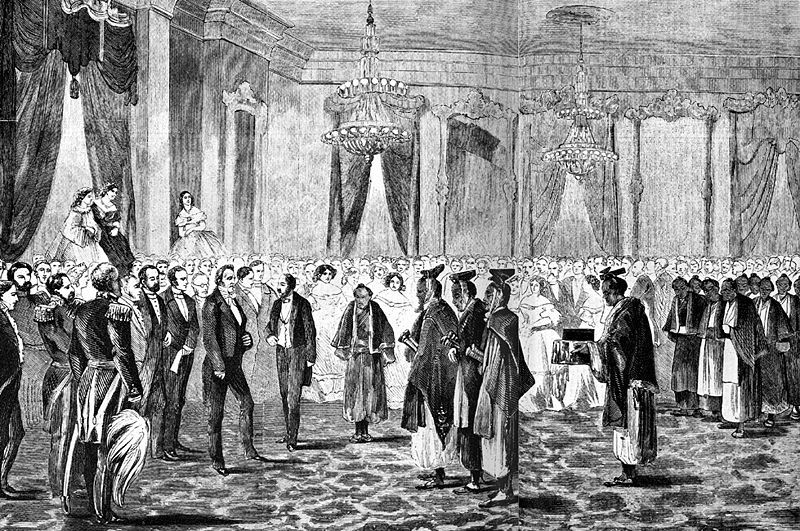“Punting the Pundits” is an Open Thread. It is a selection of editorials and opinions from around the news medium and the internet blogs. The intent is to provide a forum for your reactions and opinions, not just to the opinions presented, but to what ever you find important.
Wednesday is Ladies’ Day.
Thanks to ek hornbeck, click on the link and you can access all the past “Punting the Pundits”.
Follow us on Twitter @StarsHollowGzt
Katrina vanden Heuvel: Why I’m Going to Miss Jon Stewart
And how will we watch the GOP debates without him?
When I appeared on The Daily Show in late 2002, host Jon Stewart wanted to know why conservatives seemed to have a more effective message than progressives. “Are they better at selling their ideas, or they just have better ideas?” he asked. Although I disputed his premise, the Bush administration and its allies clearly had marginalized progressive opposition to the impending war in Iraq, and Stewart still thought of himself as an impartial observer. “Join us in the center,” he said as the interview concluded. “That’s my movement.”
But it wouldn’t be long before Stewart, whose 16-year run on “The Daily Show” comes to an end next week, became one of the most important and influential voices on the progressive left-an improbable icon who cut through right-wing talking points with satire while making progressive ideas sound like common sense. Stewart’s show provided valuable airtime to views that were often neglected, even denigrated, in mainstream media, and made them sound appealing. And by reviving political humor on a nightly basis, he helped turn on young (and old) people to politics and broaden the progressive base.
Chelsea E. Manning: Transgender people’s inclusion in the military is a key first step – but not the last
When I wanted to serve my country, I was forced to hide the most basic and human aspect of my life and my identity from the people to whom I was supposed to be the closest – and with whom I had to trust my life. I also had to hide from myself.
Every morning, I had to put on a uniform, and a disguise, because I was transgender, and I am a soldier. [..]
Forcing us to keep our identities to a secret in order to serve our country harmed all of us in some way, and it harms the unity and cohesion on which the military and the men and women who serve in it require. It forces thousands to live in secrecy and fear, and the pain of hiding my truth continues to haunt me to this day. Plus, I felt distant and disconnected from the others in my unit because I was trans and couldn’t serve openly, and that distance separated me from the rest of the “team”.
But while inclusion is an important first step, it is far from the last. Trans people who serve in secret also face systematic hostility, from identification requirements that may not reflect their lived genders to uniform restrictions that make it difficult to effectively transition. The policy changes Carter is planning to study must to ensure trans service members and veterans can access medical care they need, as well as identification and clothing that reflects who they are. Without those changes, lifting the ban on trans service members would be a predominantly hollow victory.
Mary Bottari:
“Saucy Suffragettes” Party as Voting Rights Are Rolled Back
Voting rights around the country have been under serious assault in recent years. In 2008, President Obama was elected with the outsized support of African Americans, students and women. After the 2010 mid-term elections, new Republican majorities in state houses across the country began to pursue an aggressive voter restriction strategy, not seen since the undoing of post-Civil War Reconstruction. From early 2011 through the 2012 election, state lawmakers introduced at least 180 bills to make voting more difficult in 41 states. By 2014, voter rights had been significantly impaired in 21 states, say the expert attorneys at the Brennan Center for Justice.
The attack has been particularly relentless in Wisconsin. Since being sworn into office, Governor Scott Walker and Lt. Gov. Kleefisch have ushered into law one of the strictest “voter ID” requirements in the nation, even worse than the original American Legislative Exchange Council “model” bill. Although voter fraud is virtually nonexistent in the state, experts say that some 300,000 people lack the form of ID required to vote under the new law. If historic voting patterns are any indication, the majority of them are women.
Sandra Fulton: Cyber Bill Gives Companies Perfect Cover to Gut Your Privacy
Following several high-profile data breaches – such as those at Sony and the U.S. Office of Personnel Management – Congress is once again feeling the pressure to push “cybersecurity” legislation.
The problem is, the bill they’re laser-focused on is misguided, wouldn’t protect us – and is a huge gift to companies wanting legal cover if and when they choose to violate Americans’ privacy rights. [..]
If CISA passes, companies would be permitted to monitor and then report to the government on vaguely defined “cyber-threat indicators” – a term so broad that it covers actual threats hackers pose to computer systems but also sweeps in information on crimes like carjacking and burglaries. Those are serious offenses to be sure, but they have nothing to do with cybersecurity.
While current law allows companies to monitor their own systems for cyber threats, CISA would take this to the next level. The bill would allow companies that hold huge swaths of our personal data – like health insurers and credit-card companies – to monitor and report online activity “notwithstanding any other provision of law.”
This means that CISA would undermine the strong protections embedded in laws like the Electronic Communications Privacy Act of 1986 and the Privacy Act of 1964 – laws designed to keep the government from spying on our communications.
Ruth Coniff: The Battle Over Education and Civil Rights
“This is a historic moment to end 13 years of legislative malpractice” NEA president Lily Eskelsen Garcia says of the federal K12 education law that Congress is currently hashing out.
Congress has failed to reauthorize the Elementary and Secondary Education Act ever since George Bush rewrote the law and renamed it No Child Left Behind in 2002.
The original Act, signed into law by President Lyndon Johnson in 1965, was part of a civil-rights-era drive to rectify glaring inequality.
It dealt with disproportionate funding within and among the states. It created grants to help low-income students, built libraries and provided text books to schools in poor areas.
All of that changed with No Child Left Behind.
Peggy cooper Davis: The legal erasure of black families
In his new book “Between the World and Me,” Ta-Nehisi Coates recounts taking his four-year-old son, Samori, to a movie theater in Manhattan’s reputedly progressive Upper West Side. Coates and Samori are riding an escalator to exit the theater. Samori, who is doe-eyed beautiful, moves too slowly to suit a white woman on the escalator; the woman pushes him and says, “Come on.” Her tone is not described, but Coates reports his furious response in vivid detail. His rage leads to a loud argument with the woman and then with bystanders who come to her defense. Coates pushes one of the defenders, to which the defender responds, “I could have you arrested!”
Coates is a black man, a member of a socially constructed people who, he points out, have existed in America longer as slaves than as free citizens. And while it might be tempting to interpret the woman’s push and her words as ambivalent, or perhaps even as benevolent, for Coates they must have been stunningly resonant with the social disregard and legal erasure that black parents endured in slavery and in post-slavery apprentice systems – in which black children were apprenticed to former masters, sometimes against their parents’ wishes – and that they continue to endure in the racially disproportionate surveillance of clumsy child welfare systems.
 Welcome to the Stars Hollow Gazette‘s Health and Fitness News weekly diary. It will publish on Saturday afternoon and be open for discussion about health related issues including diet, exercise, health and health care issues, as well as, tips on what you can do when there is a medical emergency. Also an opportunity to share and exchange your favorite healthy recipes.
Welcome to the Stars Hollow Gazette‘s Health and Fitness News weekly diary. It will publish on Saturday afternoon and be open for discussion about health related issues including diet, exercise, health and health care issues, as well as, tips on what you can do when there is a medical emergency. Also an opportunity to share and exchange your favorite healthy recipes. 



Recent Comments